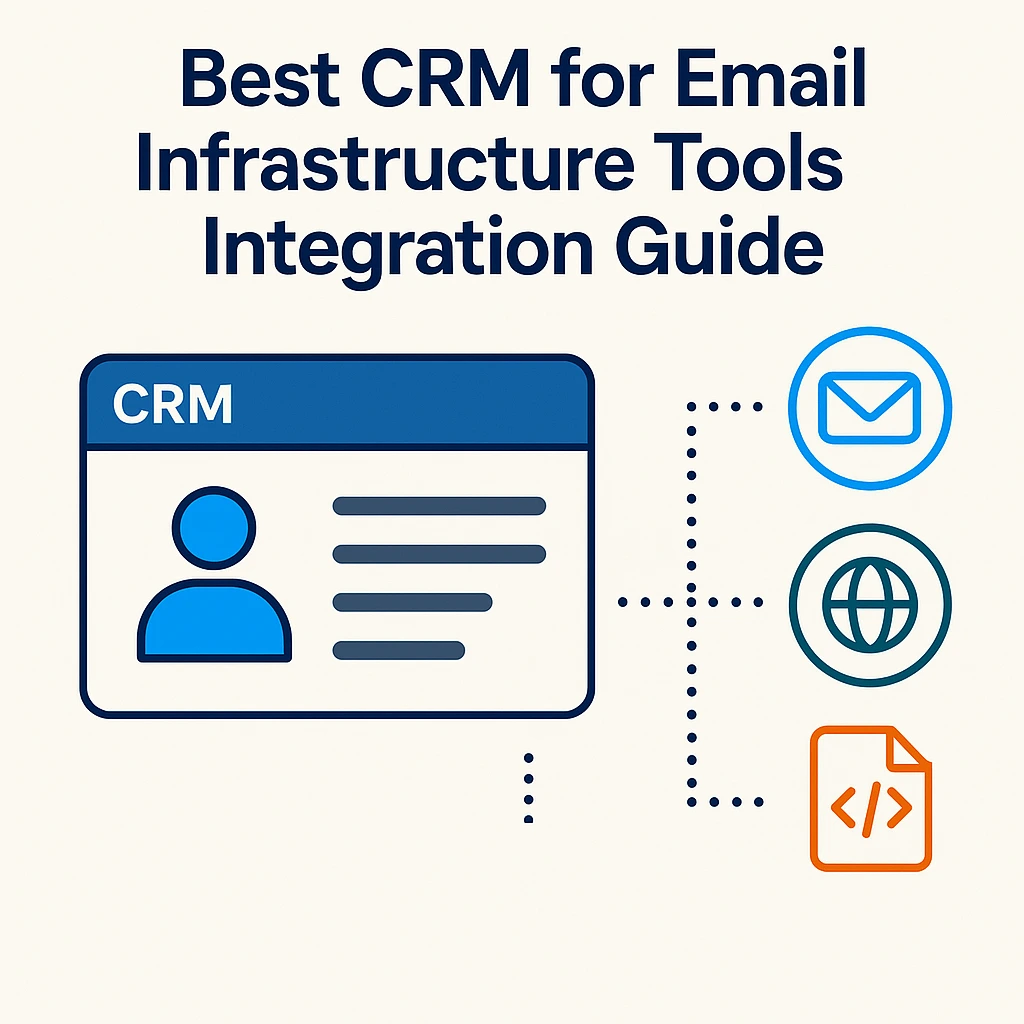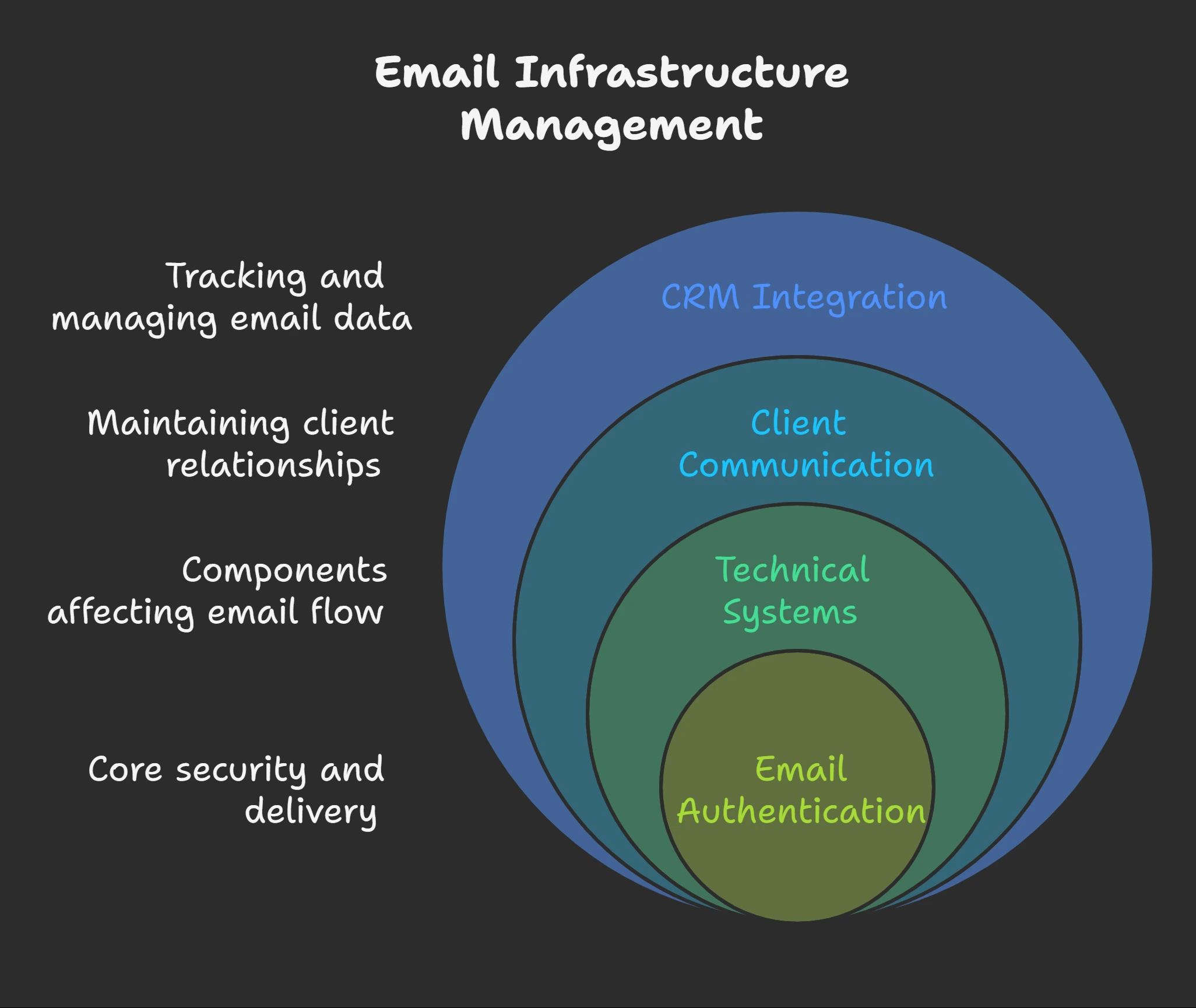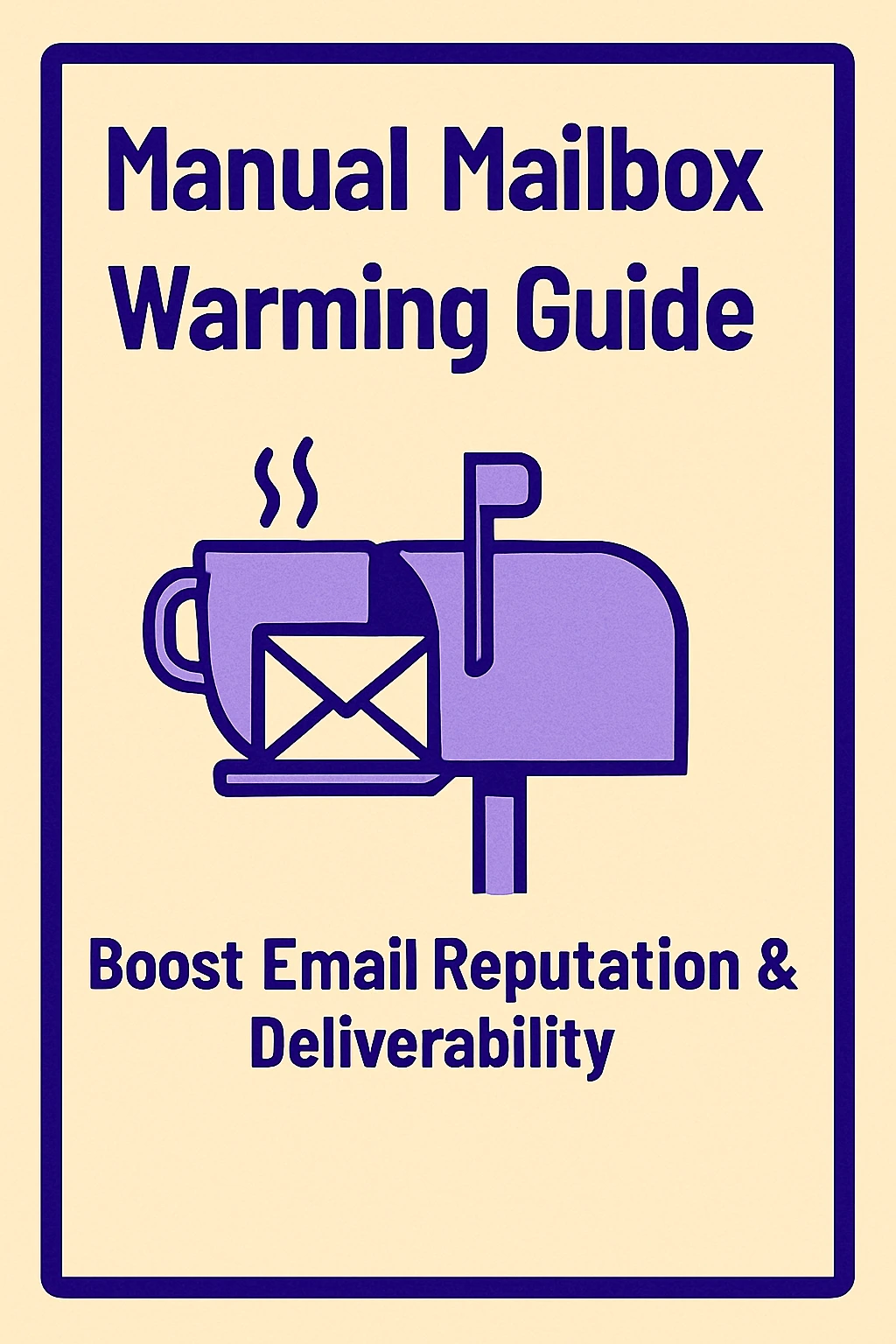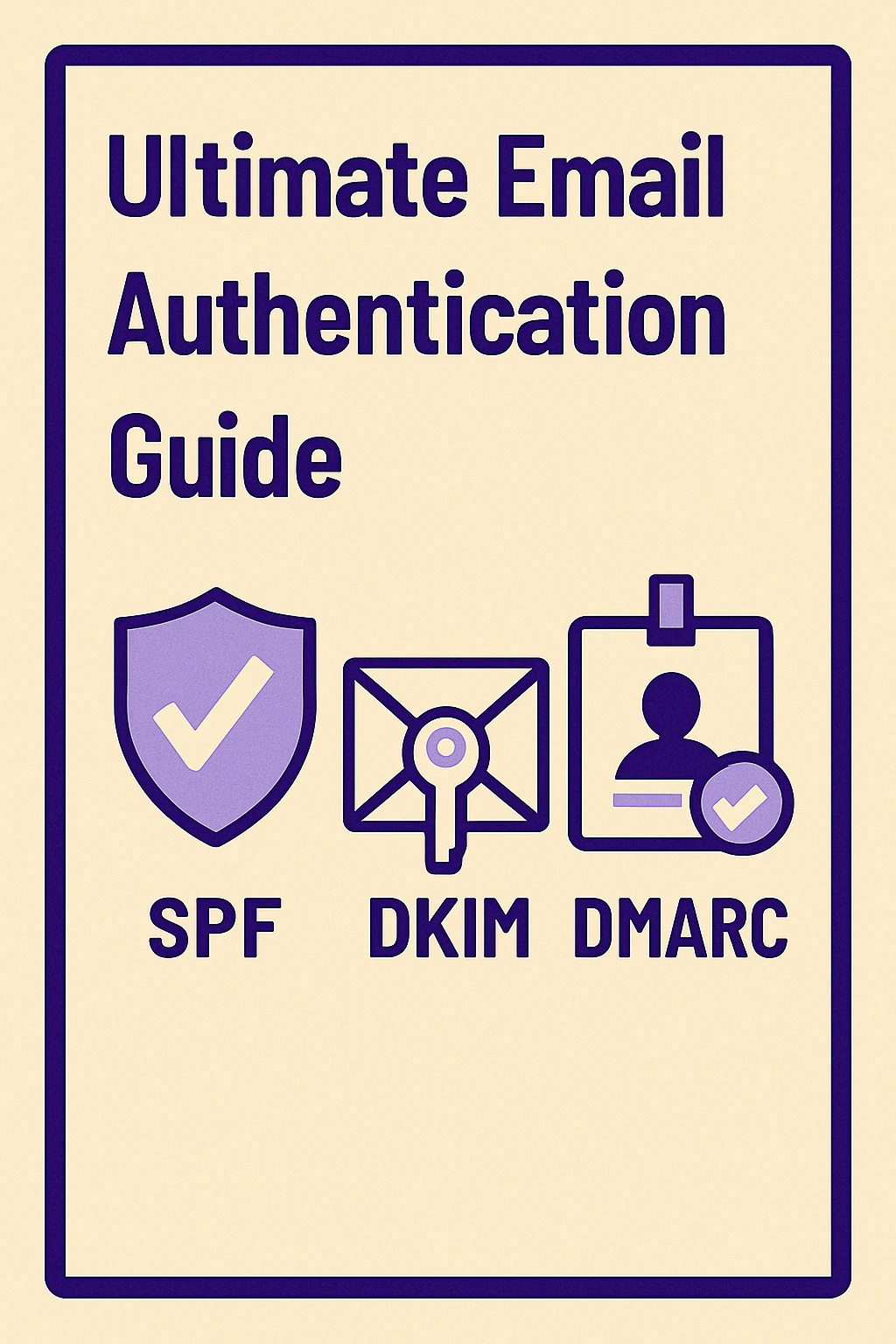Best CRM for Email Infrastructure Tools Integration Guide
Choosing the right CRM is crucial for teams working in email infrastructure. Whether you're a technical founder, an email deliverability consultant, or building a platform from scratch, your CRM needs to go beyond basic contact management. It should support custom workflows, offer strong integration capabilities, and help you monitor critical email performance metrics. In this guide, we compare top CRM tools like Pipedrive, Close, HubSpot, Zoho, Copper, CRM.io, and MailKarma.ai. Each one fits different use cases within the email infrastructure world. From simple pipeline tracking to advanced API access and deliverability monitoring, we’ll break down what makes each tool a smart choice for your team.

Managing email infrastructure is tough work. You deal with broken SMTP servers. Client domains get blacklisted overnight. Reputation scores drop without warning. A good CRM for email infrastructure makes this job much easier.
Regular CRMs don't work for us. They're made for selling products. Not managing technical email systems. We need CRM software for email platforms that gets our business. Something that tracks client setups and fixes problems fast.
Your clients want quick answers when emails stop working. They need updates about reputation changes. They expect you to know everything about their setup. The right CRM helps you deliver this service.
Why CRM Matters for Email Infrastructure Companies

The Complexity of Email Infrastructure Management
Yesterday, my client called in a panic. Their online store stopped sending order emails. Customers were getting angry. Their IT team had changed an SPF record. This broke all their email authentication.
This happens all the time in our work. Email infrastructure has many moving parts. SMTP configs change. DMARC policies break. SPF records get messed up. DKIM signatures fail. IP reputation drops fast. DNS changes destroy everything.
Every client call involves multiple technical systems. Someone calls about delivery problems. You need their DNS settings right away. You need their ticket history. You need current reputation data. All within one minute of picking up the phone.
Email problems don't wait for business hours. Blacklists update at midnight. Reputation issues happen on weekends. Your CRM must track all this technical stuff. It also needs to help you keep good relationships with paying clients.
CRM as a Centralized Hub
Think about your daily routine. You check monitoring dashboards. You review overnight alerts. You answer client emails. You update support tickets. You try to do some real work too.
Without a central system, you jump between tools constantly. You lose track of important details. You waste time searching for information.
A good CRM becomes your control center. Client contacts live next to their SMTP setup. Reputation changes show up with ticket history. Billing info connects to performance data. Everything for each client sits in one place.
This saves huge amounts of time. It prevents embarrassing mistakes. No more telling clients you'll "look into it" because you forgot their setup. No more missing follow-ups because they got lost in email. Your team gives professional answers because all the info is right there.
Customer retention gets better when you spot problems early. Your CRM should flag weird bounce rates automatically. It should catch reputation drops fast. It should notice authentication failures quickly. Then you can call clients with solutions before they get angry.
Key Features to Look for in CRM for Email Infrastructure
Built-in Email Tool Integrations
Most CRMs promise integrations but can't handle our data. They track website visits and email opens. Not SMTP performance and DNS changes. You need systems that connect with your monitoring tools easily.
SMTP Monitoring and Deliverability Insights
Your CRM must connect with your SMTP monitoring service directly. Bounce rates spike. Complaint levels jump. Authentication starts failing. This info needs to show up in client records immediately. Not after manual updates. Not tomorrow morning. Right now.
The best systems use real-time webhooks. They capture events as they happen. You see, reputation changes instantly. You spot delivery failures right away. You catch authentication problems immediately. You can call clients with fixes before they notice issues.
Historical data matters too. Clients like seeing trends over time. You can spot patterns that prevent future problems. Maybe certain industries get more complaints during the holidays. This knowledge helps you give better advice.
IP/Domain Reputation Dashboards
IP and domain reputation can kill email programs overnight. Your CRM should connect to reputation monitoring services directly. This critical data should show prominently in every client record. No more logging into separate dashboards during client calls.
Dashboard integration kills manual reporting work. Your system makes comprehensive updates automatically. No more copying numbers into monthly reports. Clients get consistent updates that include technical metrics and account notes together.
Set up automatic alerts when reputation scores drop. Your tech team can investigate while account managers update clients. This teamwork prevents small issues from becoming big disasters.
Support for Technical Ticketing and Logs
Email infrastructure problems need detailed documentation. Your CRM should handle complex technical tickets as well as sales opportunities. Regular ticketing systems don't understand our industry's needs.
Integration with Postmaster Tools and APIs
Google, Yahoo, and Microsoft offer postmaster tools. These give insights into client sending practices. Your CRM should pull this data automatically. Manual data entry takes too much time and creates errors.
API connections enable powerful automation. Gmail's postmaster tools report authentication failures for a client. Your CRM creates support tickets automatically. It assigns them to tech staff. It sends initial notifications to the affected client. This quick response prevents small config issues from becoming big deliverability disasters.
Don't forget smaller email providers either. Many email infrastructure companies work with multiple ESPs. Your CRM should handle all of them. More data sources give you a better picture of client email performance.
Ability to Track DNS Changes and Alerts
DNS changes can wreck email deliverability. Tracking them manually across hundreds of client domains is impossible. Your CRM should integrate with DNS monitoring services. It should alert team members automatically when records change unexpectedly.
This tracking helps with troubleshooting and client education. Deliverability problems appear suddenly. You can check if recent DNS changes caused them. You can help clients understand how IT "updates" can break email delivery.
Multi-Channel Communication Tools
Email infrastructure support happens through multiple channels. Clients' emails about routine questions. They call immediately during delivery emergencies. Your CRM should handle all communication methods seamlessly. It should keep the complete conversation context.
Email, Chat, and VoIP Options in One System
Nothing hurts client relationships faster than losing conversation history. A client starts with chat support. They escalate to an emergency phone call. Your team needs immediate access to the complete interaction history. This continuity makes everyone look professional. It cuts problem resolution time significantly.
VoIP integration provides call logging and recording. These features help train new team members. They resolve disputes about what was discussed during support calls. Some clients have selective memory about promises made during stressful situations. Recordings provide objective documentation.
Custom Fields and Flexibility
Every email infrastructure company tracks different metrics. Your CRM should easily accommodate custom fields for whatever data matters to your business. Generic systems often force you to work around their limitations.
Log DMARC Reports, Abuse Complaints, and Bounce Metrics
DMARC reports, abuse complaints, and bounce metrics need structured storage. They need easy retrieval and analysis. Your CRM should provide dedicated custom fields for these critical data points. It should allow sophisticated filtering and reporting based on these metrics.
This flexibility enables powerful trend analysis. You can compare clients easily. You can quickly identify which clients have the best authentication practices. You can spot concerning patterns in complaint rates across different industries. These insights help improve your services and provide better client guidance.
Best CRM Types for Email Platform Startups
.webp)
Lightweight CRMs for Technical Founders
Technical founders hate overly complex software. They want simple, focused tools. Tools that track prospects and customers without extensive training or complicated setup.
Pipedrive works great for this group. It provides clean pipeline management with solid integrations. The interface doesn't overwhelm you with marketing features you'll never use. You can track deals, manage contacts, and handle basic support without unnecessary complexity.
Close offers excellent communication tools. They integrate naturally with development workflows. The email tracking and calling features help technical founders maintain personal relationships with early customers. You can build your platform and manage daily operations at the same time.
Scalable CRMs for SaaS Growth Teams
Growing email infrastructure companies need systems that handle increased complexity. They need team collaboration features. What works for a solo founder breaks down when you have ten people managing hundreds of clients.
HubSpot provides comprehensive features for managing leads, customers, and support tickets. The detailed reporting helps growing teams understand customer patterns. It helps optimize operational processes. It includes more features than most startups need initially. But you grow into them naturally.
Zoho offers strong customization at reasonable prices. The extensive integration marketplace includes many tools that email infrastructure companies use regularly. This makes creating connected workflows much easier. No custom development required.
Developer-Friendly CRMs with API Access
Companies with strong technical teams prefer systems with extensive API access. They want integration flexibility. They'd rather build custom connections that work exactly how they want. Instead of adapting their processes to platform limitations.
Copper integrates deeply with Google Workspace. Perfect for teams already using Gmail and Google Calendar daily. The integration feels natural and seamless. You can build additional custom connections as your needs evolve.
CRM.io provides robust API documentation and comprehensive webhook support. This flexibility allows technical teams to build custom integrations with monitoring and alerting systems. You can create workflows that match your specific operational requirements.
Tool Overview
Mistakes to Avoid When Choosing CRM for Email Infrastructure
Overlooking API Limitations
Many CRMs advertise impressive integration capabilities. But they have severely limited APIs. They don't support the complex data exchange patterns email infrastructure companies need. Before committing to any platform, verify thoroughly. Make sure you can push deliverability data into customer records. Make sure you can extract it for comprehensive reporting.
Test API rate limits and data retention policies carefully. Some systems restrict how much historical data you can access. They severely limit how frequently you can make API calls. These restrictions can completely prevent you from building automated workflows. Workflows that make CRM integration genuinely worthwhile.
Ignoring Deliverability-Specific Use Cases
Generic CRMs typically lack specialized fields and workflows. They're not designed for email infrastructure management. They might not provide appropriate storage for IP reputation scores. No DMARC policy tracking. No DNS change monitoring. Choosing a platform without these essential capabilities means extensive customization work. Or accepting frustrating functionality limitations.
Consider carefully how the CRM handles technical support tickets. Email infrastructure issues often require detailed technical documentation. They need specialized escalation procedures. General-purpose systems simply don't support this effectively enough.
Choosing Features Over Simplicity
Feature-rich CRMs look incredibly appealing during sales demos. But unused marketing automation modules create unnecessary complexity. Overly complex lead scoring systems just get in the way. Email infrastructure companies typically need strong integration capabilities. They need flexible custom field support. Much more than sophisticated marketing automation tools.
Evaluate whether the CRM's core strengths match your primary needs. A system that excels at marketing automation but provides weak API support might hurt your daily operations. More than it helps your business growth.
Advanced Integration Strategies
Automated Incident Response
Connect your CRM with comprehensive monitoring platforms like MailKarma.ai. This fully automates customer communications about deliverability issues. When monitoring systems detect problems, your CRM creates detailed support tickets automatically. It notifies relevant team members. It sends initial status communications to affected clients. No manual intervention required.
This integration level transforms reactive support into genuinely proactive service delivery. Clients appreciate being informed about potential issues. Before they notice problems affecting their email programs or themselves.
Predictive Customer Health Monitoring
Advanced CRM implementations can predict potential customer churn. They analyze technical performance data alongside engagement metrics. They look at communication patterns. When a client's email performance consistently deteriorates despite your recommendations and support efforts, this pattern often indicates growing frustration. Possible cancellation risk.
Use these predictive capabilities to trigger proactive retention efforts. Trigger specialized support interventions. Early identification and intervention often prevent cancellations. While demonstrating your genuine commitment to customer success.
Start your free trial with MailKarma.ai today and get real-time alerts, blacklist monitoring, and deliverability insights, powered by the most trusted name in email infrastructure.
Implementation Tips
Start Simple
Don't try to integrate everything at once. Pick your most important monitoring tool first. Get that connection working smoothly. Then add other integrations one by one.
Train Your Team
Schedule hands-on training sessions. Focus on daily workflows. Show team members how the CRM improves their specific tasks. Don't just demonstrate features. Show real benefits.
Clean Your Data
Export existing customer data carefully. Clean it before importing. Remove duplicates. Fix formatting issues. Set up custom fields before importing contacts. This ensures all relevant data has appropriate storage.
Monitor Performance
Track how the CRM affects your operations. Measure customer response times. Monitor ticket resolution rates. Check client satisfaction scores. These metrics show if your CRM investment is working.
Conclusion
Selecting the right CRM for your email infrastructure business comes down to finding something that works with your daily reality. You need systems that understand deliverability metrics. Systems that connect seamlessly with your existing monitoring tools. Systems that help your team provide consistently excellent customer service.
The best CRM won't magically transform your business overnight. But it will eliminate significant daily friction. It will help you scale operations effectively. Focus on integration capabilities. Focus on customization flexibility. Focus on ease of use. Skip flashy marketing features you'll probably never touch.
Remember that implementation success depends heavily on your team's buy-in. It depends on proper training. Choose a system that matches your current technical capabilities. Choose something that fits your realistic growth plans. Whether you select a simple solution for a small team or a comprehensive platform for larger operations, make sure it solves your real business problems.
Consider leveraging advanced monitoring platforms like MailKarma.ai to enhance your CRM's native capabilities. This provides the kind of proactive service delivery that sets your email infrastructure business apart from competitors.
FAQs About CRM for Email Infrastructure Tools
What's the best CRM for email platform startups?
HubSpot and Pipedrive work well for early-stage companies. Copper and Close offer superior integrations for technical workflows. Choose based on your team size and technical requirements.
Can CRMs handle email deliverability monitoring?
Not directly. But many connect effectively with specialized tools like MailKarma.ai, Postmark, and SMTP providers. These integrations bring critical deliverability data directly into your customer records.
Should I pick a CRM with built-in SMTP support?
Absolutely. Especially if you're offering transactional email services or custom SMTP solutions. This integration helps track performance metrics alongside customer communications seamlessly.
What kind of CRM works best for email infrastructure consultants?
Look for systems with strong ticketing capabilities. Flexible tagging. Custom fields for client domain and IP records. These features help manage technical client relationships effectively.
Can CRMs track DNS or DMARC records?
Not natively. But they should integrate with specialized tools that do. They should allow you to log this critical data for each contact and account comprehensively.
Recent Blogs
FAQs: Everything You’re Wondering About Cold Email Deliverability & MailKarma’s Infrastructure
MailKarma is a dedicated email infrastructure solution built exclusively for cold email outreach. Unlike shared inbox tools or general ESPs, MailKarma gives you complete control over your sending setup—private US IPs, clean domains, and expert-backed deliverability practices. Built by cold email pros, MailKarma is optimized to scale outreach without landing in spam.
Because MailKarma sets up private infrastructure—including custom domains and mailboxes—it doesn’t offer a traditional free trial. However, you can explore the platform, view your dashboard, and test features before provisioning infrastructure. Our private dedicated email servers cost $150 per server plus $0.001 per email sent, making it extremely cost-effective for high-volume cold email campaigns. For Gmail Workspace solutions, pricing starts at $3.50 per email with a 10-email minimum, dropping to $2.50 per email for volumes over 100 emails. This transparent pricing model ensures you only pay for what you use while maintaining enterprise-grade email deliverability.
Yes. MailKarma automatically sets up SPF, DKIM, and DMARC records using best-in-class standards. No technical hassle—our system handles everything behind the scenes, and our support team is always ready to assist if needed.
Every MailKarma subscription includes:
- Automated DNS setup (SPF, DKIM, DMARC)
- Private mailbox hosting
- Ongoing deliverability optimization
- Server monitoring and uptime guarantees
It depends on your monthly sending volume and the number of contacts per sequence. To simplify this, MailKarma includes a volume-based calculator inside the app to help you choose the optimal setup for scale, safety, and inbox placement.
Gmail and Outlook aren't built for cold outreach—they throttle volume, rotate IPs, and limit deliverability. MailKarma gives you:
- Dedicated infrastructure
- Warmed IPs and aged domains
- No shared resources
- Built-in best practices for cold outreach
It's the infrastructure your outreach actually needs.

.png)



